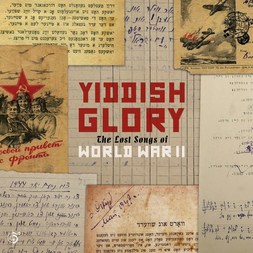 A few years ago, a hoard of songs written by Jewish men, women and children killed in World War II came to light in Kiev. The songs, in Yiddish, are haunting, raw and emotional testimonies by ordinary people experiencing terrible events. They are grassroots accounts of German atrocities against the Jews, with subjects that include the massacres at Babi Yar and elsewhere, wartime experiences of Red Army soldiers, and those of concentration camp victims and survivors. One song was written by a 10-year old orphan who lost his family in the Tulchin ghetto in Ukraine, another by a teenage prisoner at the Pechora concentration camp in Russia’s far north. The songs convey a range of emotions, from hope and humour to despair, resistance, and revenge. The project to collect these songs is as remarkable as the music itself. It began when a group of Soviet scholars from the Kiev cabinet for Jewish culture, led by the ethnomusicologist Moisei Beregovsky (1892-1961), made it their mission to preserve Jewish culture in the 1940s. They recorded hundreds of Yiddish songs written by Jews serving in the Red Army during the war; victims and survivors of Ukrainian ghettoes and death camps; and Jews displaced to Central Asia, the Urals and Siberia. Beregovsky and his colleagues hoped to publish an anthology of the songs. But after the war, the scholars were arrested during Stalin’s anti-Jewish purge and their work confiscated. The story could so easily have ended there; indeed the researchers went to their graves assuming their work had been destroyed. Miraculously the songs survived and were discovered half a century later. They were discovered in unnamed sealed boxes by librarians at Ukraine’s national library in the 1990s and catalogued. Then in the early 2000s Professor Anna Shternshis of the University of Toronto heard about them on a visit to Kiev and brought them to light. Some were typed, but most handwritten, on paper that was fast deteriorating. Most consisted just of lyrics, although some were accompanied by melodies. The songs were performed for the first time since the 1940s at a concert in Toronto in January 2016, and are shortly to be released by record label Six Degrees. Artist Psoy Korolenko created or adapted music to fit the lyrics, while producer Dan Rosenberg brought together a group of soloists, including vocalist Sophie Milman and Russia’s best known Roma violinist Sergei Eredenko, to create this miraculous recording. “Yiddish Glory gives voice to Jewish children, women, refugees whose lives were shattered by the horrific violence of World War II. The songs come to us from people whose perspectives are rarely heard in reconstructing history, none of them professional poets or musicians, but all at the centre of the most important historical event of the 20th century, and making sense of it through music,” Shternshis says. Yiddish Glory: The lost songs of World War II will be released on 23 February. For more information see: https://www.sixdegreesrecords.com/yiddishglory/
0 Comments
Leave a Reply. |
Keeping stories aliveThis blog aims to discuss historical events relating to the Jewish communities of Ukraine, and of Eastern Europe more widely. As a storyteller, I hope to keep alive stories of the past and remember those who told or experienced them. Like so many others, I am deeply troubled by the war in Ukraine and for the foreseeable future, most articles published here will focus on the war, with an emphasis on parallels with other tumultuous periods in Ukraine's tragic history. Archives
March 2024
Categories
All
|
 RSS Feed
RSS Feed
